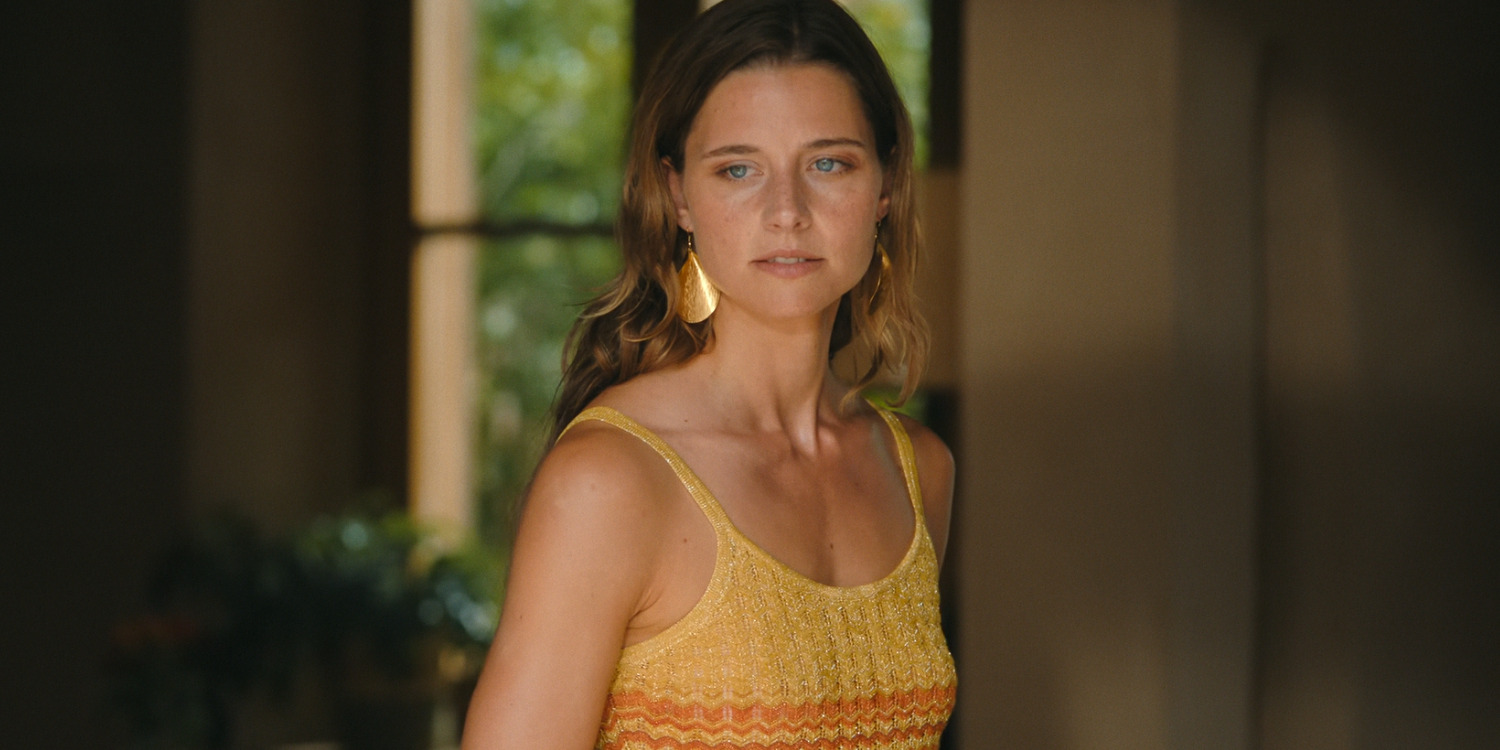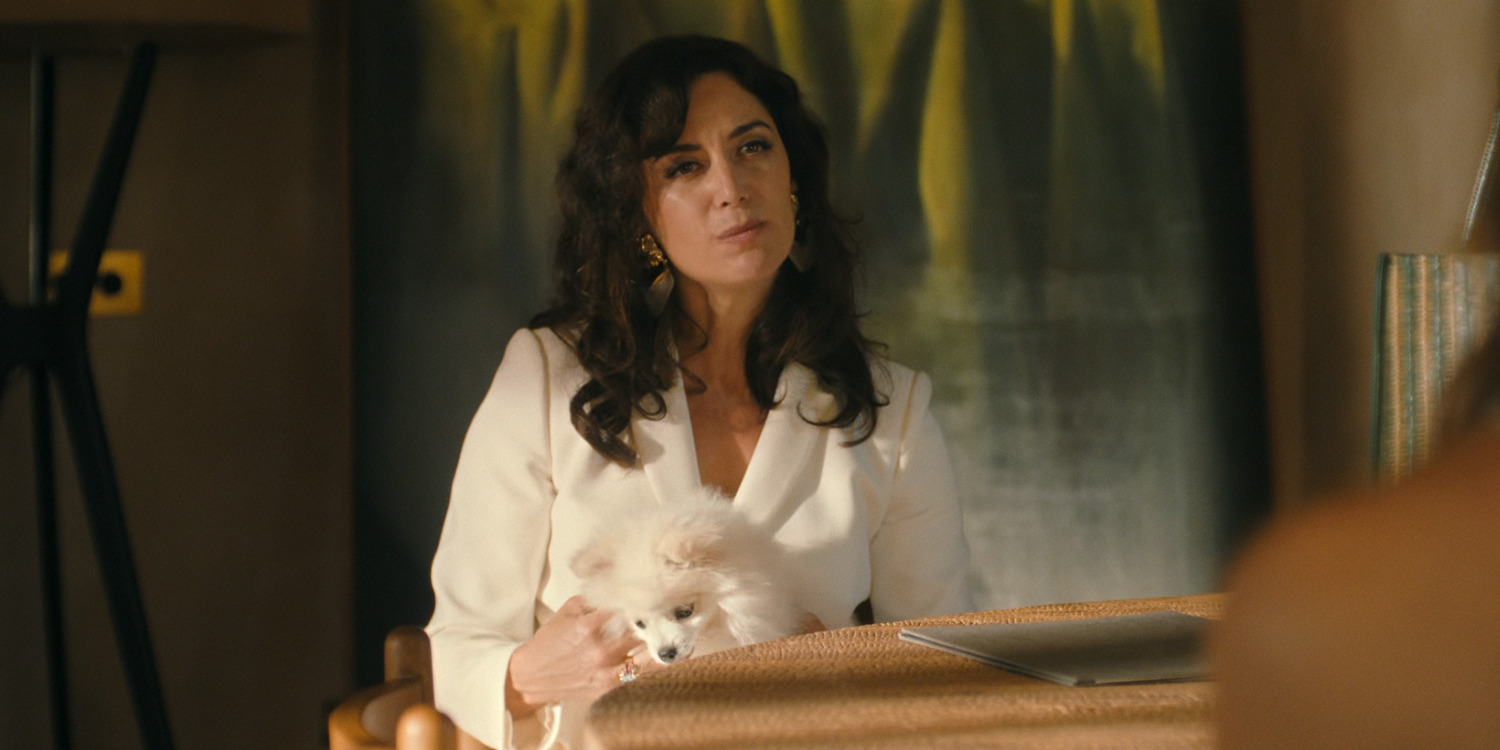Netflix’s ‘Fall for Me’ presents a story about love and deceit, where the impassioned dynamic between the characters becomes the driving force behind the narrative. The German show, which takes place in Mallorca, revolves around two sisters, Lilli and Valeria, the latter of whom has dreams of opening a B&B with her partner, Manu. However, the fairly pre-mature nature of their relationship and apparent engagement raises a red flag for the older sister. Yet, before she can unravel the mystery behind the Frenchman, her own infatuation with a charming club owner, Tom, overtakes her senses.
As a result, in the throes of whirlwind romances, the sisters run the risk of becoming victims of a lucrative scam. Lilli’s story, anchored in sensual eroticism, revolves around themes of trust, manipulation, and attraction, particularly in the context of a frenzied, ill-advised love affair. While this thematic identity is relatable enough on its own, the familiar narrative threads of honey traps and love scams further engulf the storyline in a sense of realism.
Fall for Me Highlights the Universality of Sensual Connections
Penned by screenwriter Stefanie Sycholt, ‘Fall for Me’ presents a fictional story that shares no direct basis with real-life people or events. Instead, it remains confined within its own fictitious boundaries. Still, despite any off-screen roots, the film strives for a sense of realism through the themes within its storyline. Notably, it’s Netflix’s first foray into blending eroticism with drama in the German film industry. This, paired with the highly relevant nature of erotica in the protagonist’s narrative, informs a significant identity of the project.

Reportedly, director Sherry Hormann, who is known for other films like the 1992 title ‘Leise Schatten,’ 2009’s ‘Desert Flower,’ and more, was intentional about the depiction of carnal relations in the story. At a time of widespread social and political disconnect between the masses on a number of platforms, Hormann felt that the one thing connecting humans as a collective stems from their inclination toward sensuality. Yet, at the same time, the idea of sexual liberation and depiction in film and entertainment is often dismissed as flippant or tasteless. In comparison, films depicting overwhelming violence with gratuitous blood and gore are accepted as the norm, escaping any scrutiny about their potential for crudeness or voyeurism.
The filmmaker felt the German age rating system was particularly guilty of this disparaging treatment. For the same reason, she was eager to center her story around the topic of sensuality, as explored through Lilli and Tom’s whirlwind affair. At the same time, Hormann was eager to ensure that the on-screen sensuality remained firmly in the realm of art instead of edging into voyeurism, wanton territory. Consequently, the director chose to work with Florian Federl, a well-known intimacy coordinator, who helped choreograph the sexually charged scenes between the lead actors Svenja Jung and Theo Trebs. Ultimately, these aspects culminated in ensuring the erotic identity of ‘Fall for Me’ remains grounded in realism.
Fall for Me Explores the Negative Impact of Romance Scams
For the most part, ‘Fall for Me’ remains an entirely fictitious movie with little to no direct inspirations lifted from reality. Even so, the central narrative exists within authentic and even relatable contexts, allowing the film to retain some level of realism. This is most notably achieved through its depiction of romance scams, which remains a significant nucleus for Lilli’s experiences. In the story, the protagonist’s sister, Valeria, is in a dubious relationship with Manu, which reeks of duplicity and deceit. For the same reason, her older sister embarks on an investigative venture to save her sister from romantic and financial ruin. However, she unwittingly ends up vulnerable to a similar ploy herself. In real life, romance scams are reported to cause the highest financial loss to victims.

Data also reveals a 14% increase in the prevalence of the scam in 2024, compared to 2023. In these kinds of plots, usually operated through online channels, scammers form bonds with their victims based on lies to manipulate them into providing financial help. There hasn’t been an instance of a romance scam operating on the same scale and associations as the one depicted in ‘Fall for Me.’ Even so, the reality of the practice adds much-needed context to their off-screen prevalence. Additionally, property scams, which go hand-in-hand with the romance scam in the film, also remain a rising concern in Mallorca. In 2018, more than 60 people were allegedly victims of a property scam that is believed to have earned €4 million from the affected parties. Consequently, even without off-screen counterparts, the criminality showcased within the film possesses some real-life basis.
Read More: Fall for Me Ending Explained: Do Tom and Lilli End Up Together?


